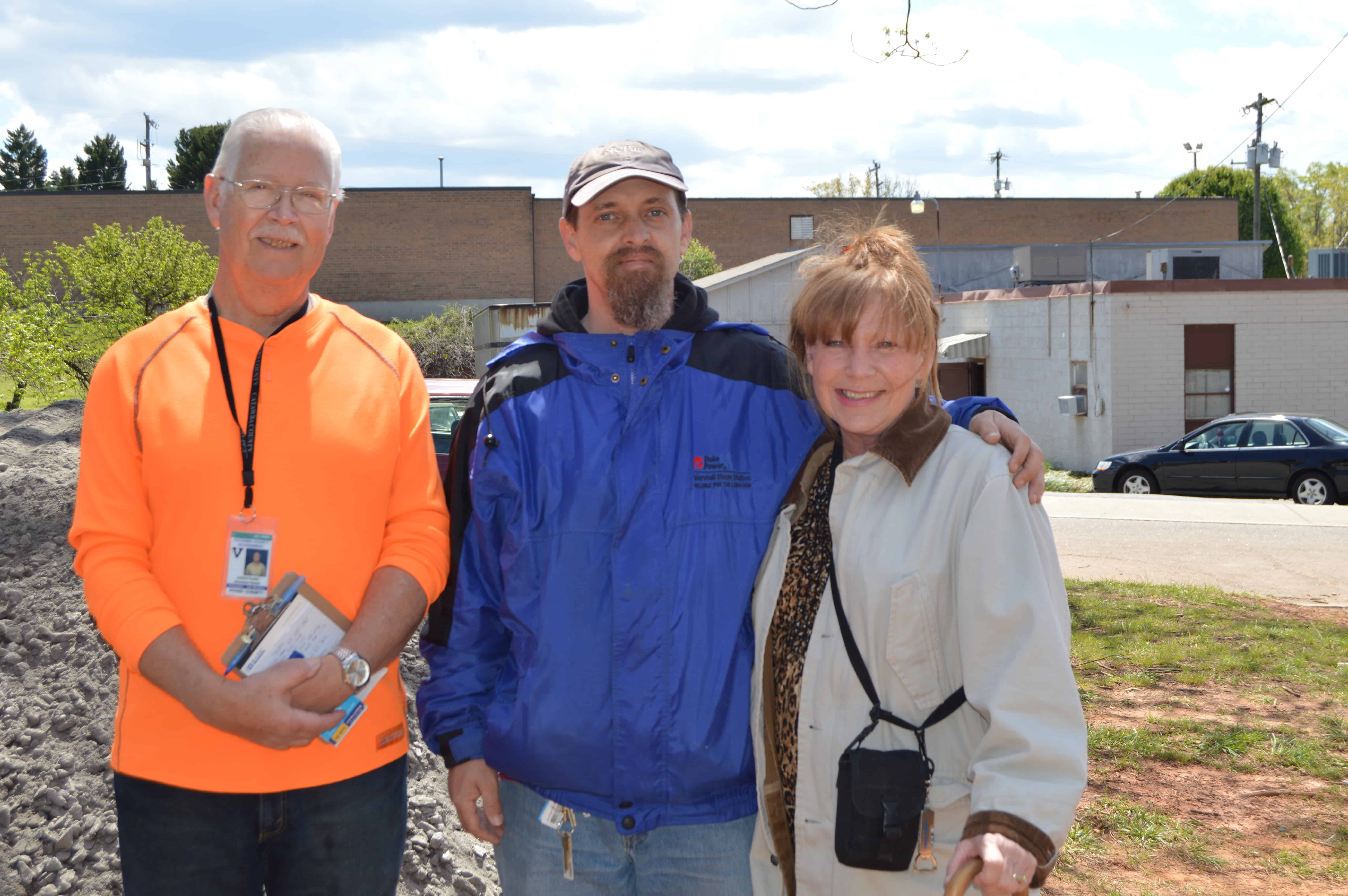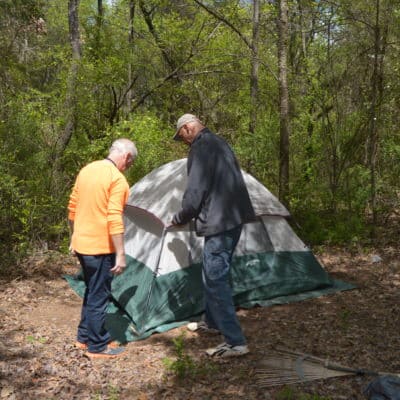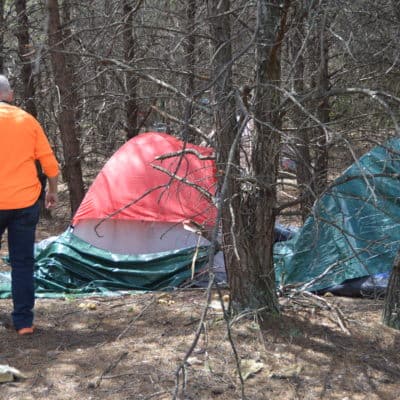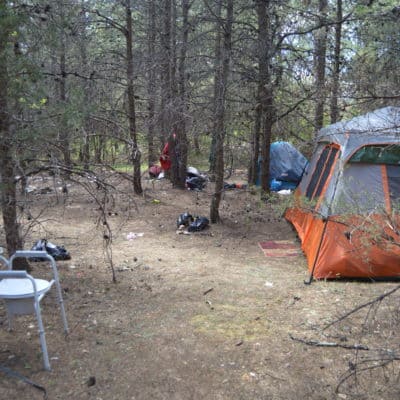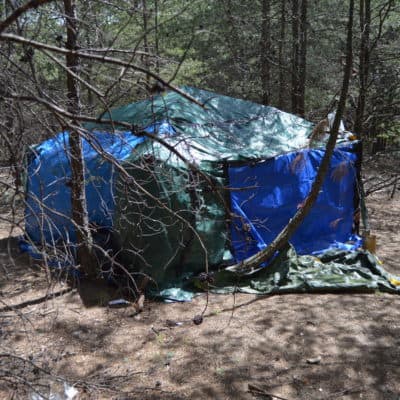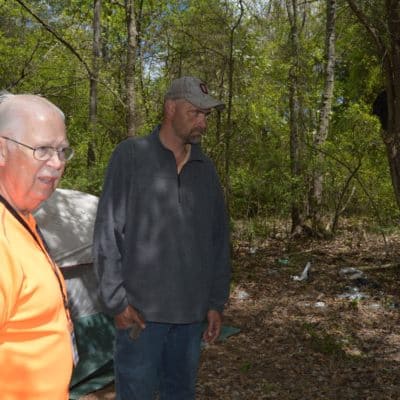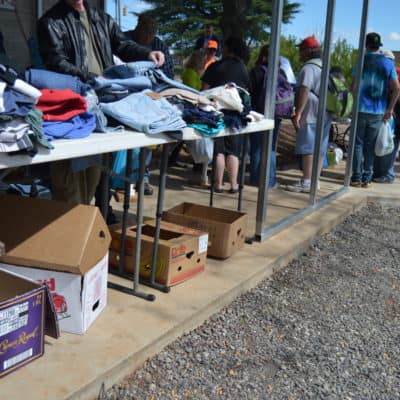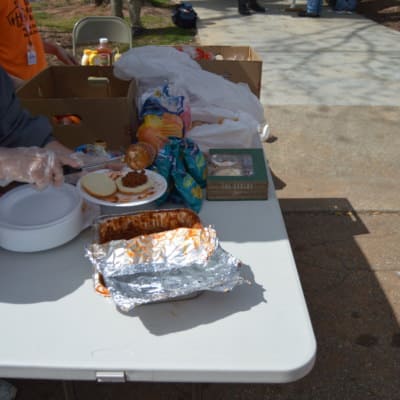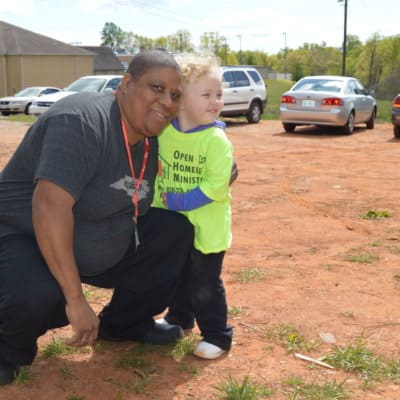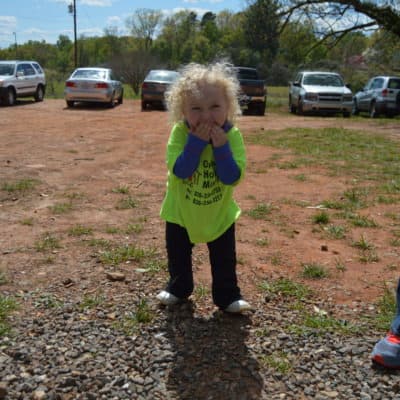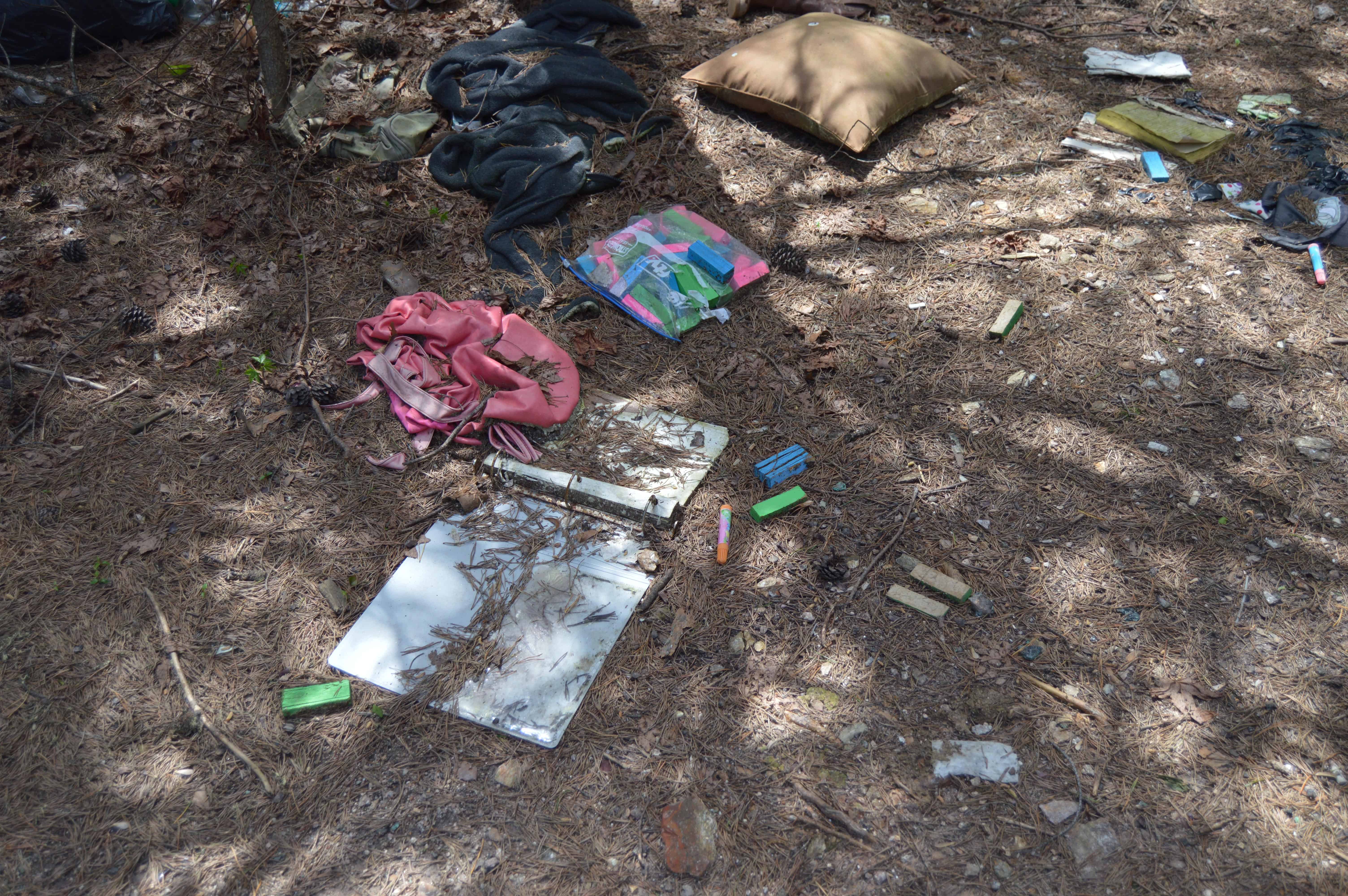Life House Ministries resides in a simple white house off of Lenoir Rhyne Boulevard in Hickory. If it were not for a steady stream of people walking up to the house on any given day it might not draw your notice tucked up against the Salvation Army complex.
The location of the Life House is intentional given that it serves the homeless of the Unifour region (Alexander-Caldwell-Catawba-Burke counties).
The Salvation Army will only host the homeless, with a preference to couples and families, for three months and if the individuals have not found housing by that point they often trudge across the thin strip of grass separating the Salvation Army from the Life House to pick up camping equipment.
In the not too distant past the Unifour region offered factories which hummed with activity nearly 24 hours a day, trucking companies which carried furniture throughout America, and the promise of a career regardless of academic achievement as long as you worked hard when you hit the factory doors.
Now many of those factories are hollowed out shells and the booming economy of the past seems a distant memory for many. Along the way a great many skilled artisans have lost the professions they believed would carry them through to retirement.
Rebecca Payton, who greeted us that Friday, was one person caught in the tailwinds of the global economy leaving the Unifour behind.
Rebecca, an administrative assistant for Life House Ministries also works with Open Door Homeless Relief, the organization which brought us to Hickory on a chillier than typical April Friday morning. She now works with Life House and Open Door in exchange for a small apartment that she and her husband call home.
Rebecca offered a shy smile and a quiet voice in contrast to some of the booming voices that surrounded her in the hustle and bustle of volunteers for Open Door Homeless Relief setting up for a bi-weekly clothes and food distribution ceremony.
After a few moments of discussing the logistics of our visit, Rebecca finally shared that she had recently been homeless, along with her husband James, and that it was a combination of the local Salvation Army and the two nonprofits who now employ her which helped the couple leave homelessness behind.
“Our story isn’t that different from a lot of folks out here. I had worked hard my entire life,” shared Rebecca.
Rebecca and James decided to move to Hickory in part because James was from the area, Charleston had grown increasingly expensive, and he was in the process of seeking benefits due to his disability. They burned through their hard earned savings as Rebecca sought a job.
“I think companies weren’t interested in hiring me because of my age,” shared Rebecca.
Rebecca and James’ story is not that different from many of the people we met that day.
Throughout the day we met individuals who had worked hard in professions that paid well for a time who had also faced a series of unfortunate breaks such as a family member falling ill or the factories leaving.
Reverend Lester Baker, one of several ministers who work with Life House, shared his view:
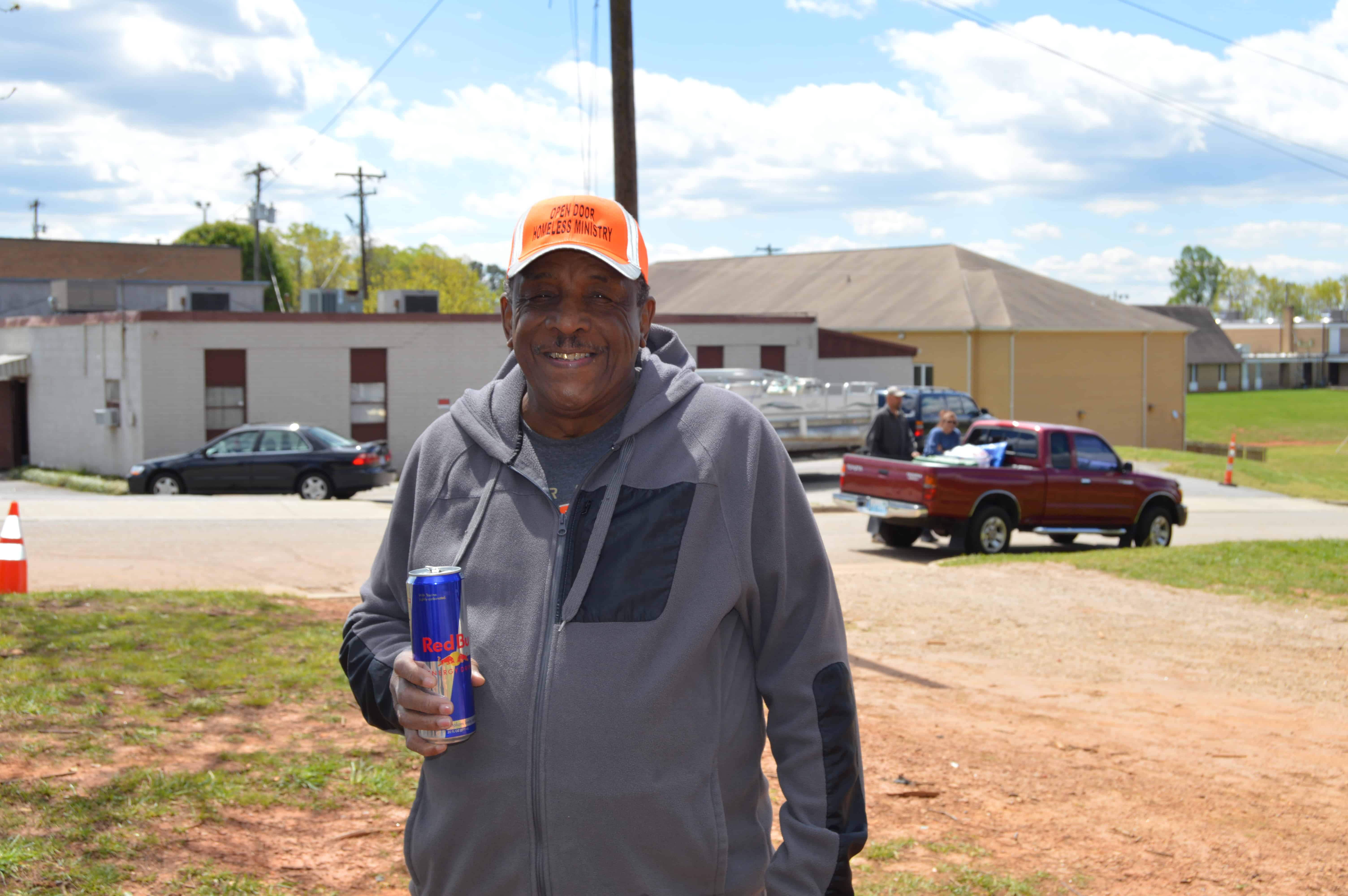
Meeting Roger
Roger Cornett, the head of the Open Door project and our host for the day, estimates that between 150 and 200 campsites exist across Catawba County, although not all are active at any given time.
Roger brought us to Hickory in the first place. We had heard rumblings of a man who moved quickly, by the seat of his pants, in an effort to stay nimble and help the greatest number of people in the Unifour. Periodically we would hear from people in the region who said we needed to meet Roger after hearing him speak. We were told Roger was ruffling the feathers of individuals who preferred not to acknowledge that homelessness was an issue in Hickory.
The first time I reached Roger on the phone his excitement was contagious. He spoke at length about the community response to our first article about the camps, invited us to their community potluck a few days following the call, invited us to tour the camps themselves, and asked us to meet for coffee or dinner the next day.
We made plans to meet for coffee or an early dinner upon our arrival to Hickory a few days following the call. Roger then casually noted he was going to the hospital earlier that same day to have his heart stopped in an effort to get it back into rhythm. To the relief of his wife, we suggested we would just meet him the following day.
It was all par for the course for Roger who suffers from Myasthenia Gravis — a rare disease that according to the Mayo Clinic is characterized by weakness and the rapid fatigue of any of the muscles a person’s voluntary control.
On the Friday we spent with Roger you would see no signs of fatigue or weakness as he bounded around the grounds of the Life House serving the many individuals who came out that day.
It was the diagnosis of Myasthenia Gravis that led Roger to the cause of combatting homelessness in the first place. He is full of energy, even with the illness, and it was this restless energy which led him to stopping his car on the side of a busy road near downtown Hickory one afternoon. Roger had seen people walking into a patch of woods by the road for some time, but he had never stopped. He had assumed they were homeless and that some of the folks may have camped there from time to time, but it was an assumption, and he wanted to know the truth.
When Roger walked into the campsite and realized that for many of the individuals present camping was not just a solution for a night or two, but actually a longer term answer then he realized he had found his calling.
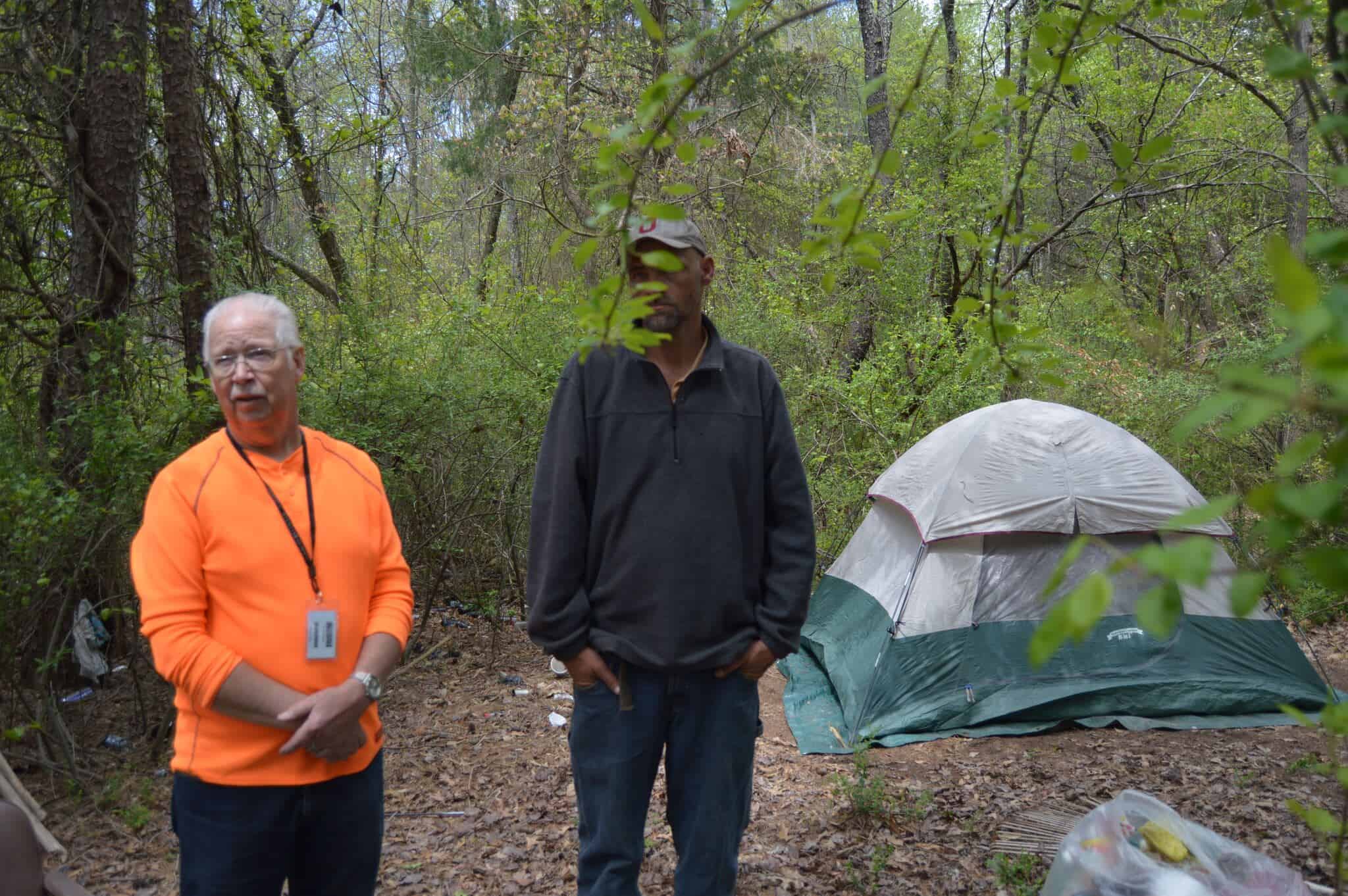
Out of Roger’s illness, and his willingness to not look away, came Open Door Homeless Relief. Open Door is a 501(c)3 nonprofit that is run on a shoestring. When money comes in, it is spent virtually immediately to give relief to those they serve. The work takes many forms including supplying tents and other camping materials, serving a meal and handing out clothing and other essentials every other Friday, and simply being present.
Roger noted many people wish to look away from the homeless — perhaps out of a fearful reminder that if they catch a few unlucky breaks they may also end up in the woods one day.

Open Door does not present their work as the solution to homelessness — a persistent problem that Roger believes will require more political will than we currently have to solve. He also argues the nonprofit solutions require will building saying, “The issue is that people want an immediate result. They want success right away and that isn’t how this works.”
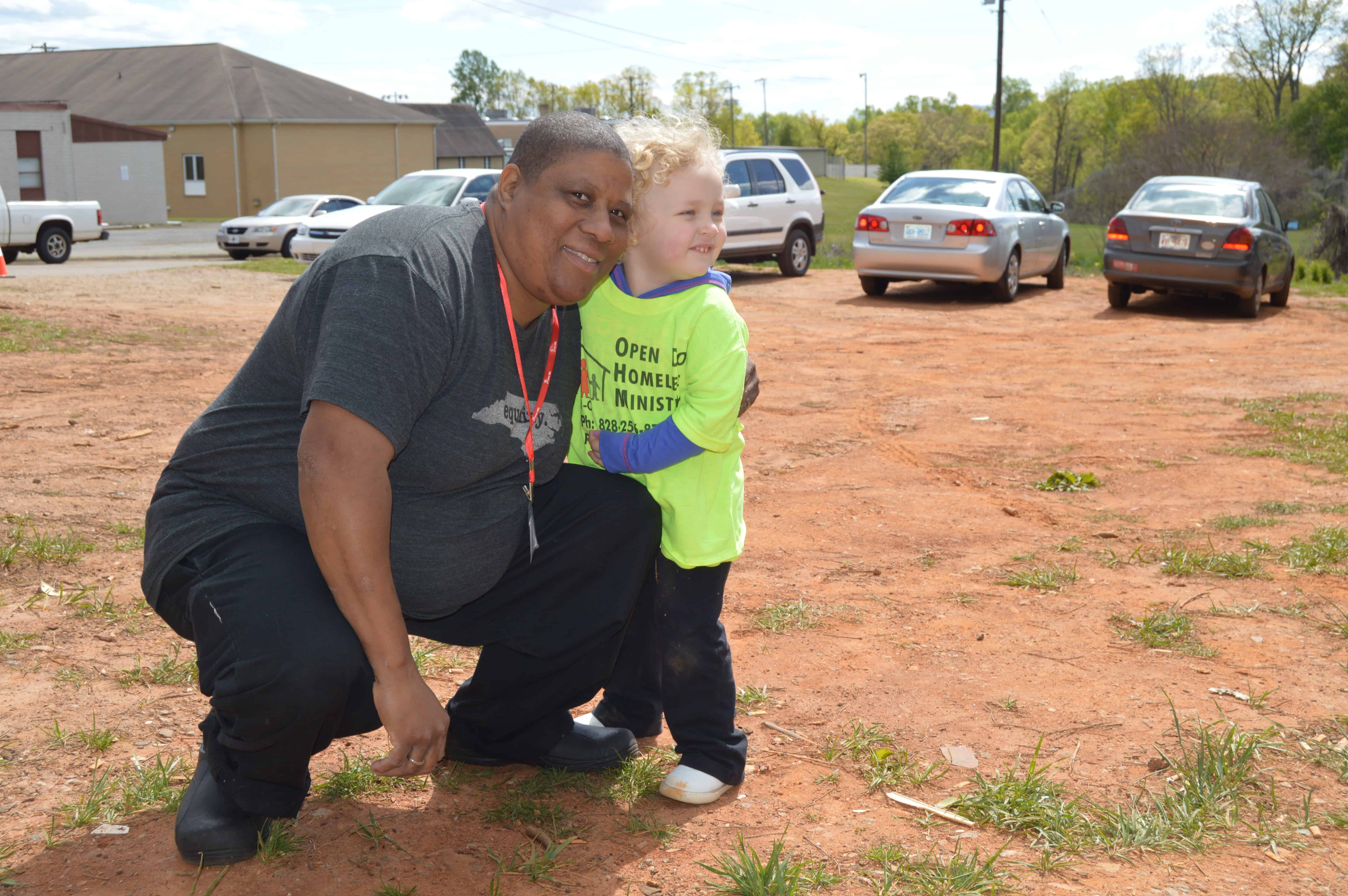
Entering the camps
While Roger spoke about the work of Open Door, the actual work was going on all around us as different volunteers and staff worked to setup for the day. One gentleman, nicknamed Too Tall with the actual name of William, was eager to help out in any way possible, even as he would periodically grab his side in pain due to a hernia that he needs an operation to repair.
William is from West Virginia, and he walked to Hickory to be with his eight-year-old son who currently lives with his sister. He is dedicated to doing things the right away after facing drug and alcohol addiction, along with a myriad of other problems, many of which he admits were self-afflicted.
William offered to be our guide to the campsites after overhearing Roger mention the possibility of touring the sites to see how families actually live. Urban camping laws present an issue, as do the landowners themselves, yet community members still search for potential sites to host them.
Over the course of the tour, we learned a variety of phrases that the community uses to identify different types of people including droppers, mobiles, and campers.
Droppers will sleep wherever they drop, usually using just a sleeping bag, if that.
Mobiles usually have a car allowing them to move about, while also providing a place to sleep.
Campers tend to have campsites they return to night after night. They will have usually obtained either a tent or created a tent using tarp, twine, and other implements.
The campsites themselves tend to have their own code of conduct called camp law, and they tend to have leaders who are referred to as camp captains. Some campsites, for example, have completely banned alcohol. William’s campsite is focused largely on married couples or couples who have been together for some time.
Part of Roger’s work is to take community leaders into the camps to see the reality of the day to day for far too many of our fellow North Carolinians, but many people refuse to go. Some cite safety concerns, others may just be uncomfortable.
In district after district we visit, teachers and administrators speak to us about the homeless students they serve and the impact on the classroom. In a more urban district we heard about a campground recently where students that live there during the school year are displaced over Christmas break as tourists heading to Florida down I-95 reserve all of the sites.
In one camp we visited on this trip, pencils, rubber erasers, and binders were located near campfires. It was easy to imagine students doing homework the night before. We need to talk to teachers to better understand the resources they need to make sure that each of these students has access to a high quality education.
Few people wish to stay in the camps for very long. Even as William works to upgrade his campsite, he is making plans to end up in permanent housing so that he can reunite with his son who attends a public school nearby.
Even when he finds housing, William promises he will continue to work on the homelessness issue. He tells us he has a speaking engagement lined up at his son’s school soon to encourage the youth to learn from his mistakes.
